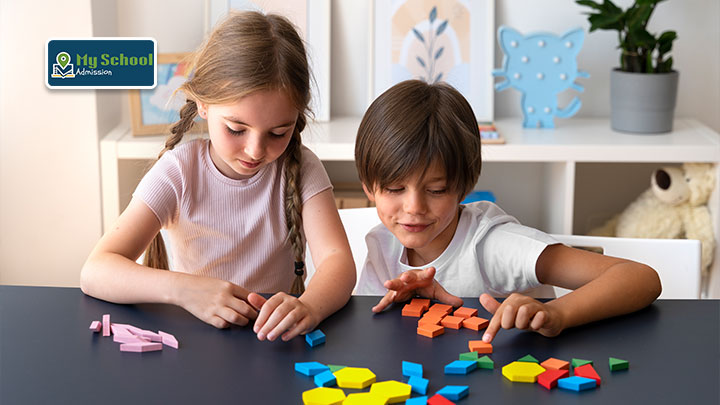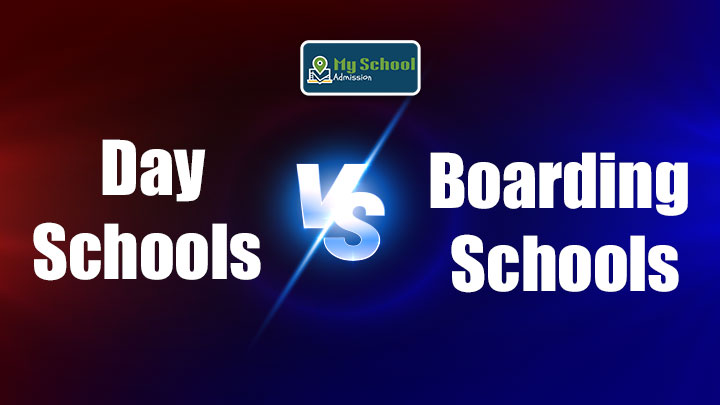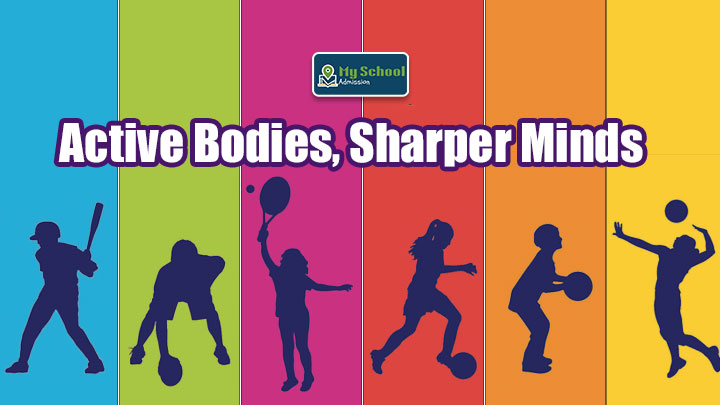Early childhood is a crucial period for growth and development. These experiences children have during these formative years lay the groundwork for their future academic, social and emotional success. Engaging in best preschool activities is not just about keeping our little ones entertained, it’s about fostering crucial skills in a fun and interactive way. This blog explores how thoughtfully chosen activities can significantly impact a child’s holistic development, making learning an exciting adventure.
Preschool Activities for kids
Engaging young children in meaningful activities is at the heart of effective early learning. These preschool activities for kids are designed to be simple, accessible, and incredibly beneficial for their budding minds and bodies. They focus on encouraging natural curiosity and hands-on exploration.
- Building Blocks and construction toys: From large soft blocks to smaller LEGO DUPLO sets, building activities are fundamental.
- Benefits: Fosters spatial reasoning, problem-solving skills, hand-eye coordination and encourages imaginative construction. It also introduces basic physics concepts like balance and stability.
- Playdough Exploration: Homemade or store-bought playdough offers endless possibilities. Provide cookie cutters, rolling pins, plastic knives and various small objects to press into it.
- Benefits: Strengthens hand muscles essential for writing, enhances creativity and promotes problem-solving as children shape and mold.
- Story Time and Rhymes: Reading aloud regularly and engaging with nursery rhymes
- Benefits: Expands vocabulary, improves listening comprehension, builds early literacy skills and nurtures a love for books. Rhymes enhance phonetic memory and awareness.
- Simple Art Projects: Provide washable paints, crayons, large paper, and various materials for collage (e.g.: scraps of fabric, leaves, cotton balls). Focus on the process, not just the product.
- Benefits: Encourages self-expression, develops fine motor skills, boots creativity and introduces color recognition.
- Outdoor Exploration: Visiting a playground, simple walks in a park, or backyard play. Encourage them to notice nature, collect leaves or chase bubbles.
- Benefits: Develops observational skills, promotes gross motor skills (running, jumping, climbing), provides fresh air and vitamin D and encourages an appreciation for the natural world.
- Role-playing: Provide doctor kits, kitchen sets, dress-up clothes or simple props. Let them lead the play.
- Benefits: Enhance social skills, emotional intelligence (understanding roles and feelings), imaginative thinking, language development. It’s how children make sense of the world around them.
Preschool Activities ideas
To truly maximize the developmental impact, consider activities that integrate multiple learning domains. These preschool activity ideas move beyond single skills, aiming for more holistic growth and preparing children for future learning environments.
- Music and Movement: Include dancing, singing and playing simple instruments.
- Examples: Follow-the-leader dance, action songs like “Head, Shoulder, Knees and Toes”, or using shakers and drums to keep a beat.
- Benefits: Improves rhythm, auditory processing, gross motor coordination and encourages self-expression. It also boosts mood and reduces stress.
- Science Exploration (Simple Experiments): Introduce basic scientific concepts through safe hands-on activities.
- Examples: Floating/sinking experiments with various objects in water, growing beans in a clear cup, or observing insects in a jar (and then releasing them).
- Benefits: Fosters observation skills, critical thinking, problem-solving and introduces early scientific methodology
- Cooking /Baking with Kids: Involve them in simple, age-appropriate cooking tasks like pouring, stirring, mashing or decorating cookies.
- Benefits: Develops fine motor skills, introduces early month concepts (counting, measuring), teaches following instructions and promotes sensory exploration (tasting, smelling). It also builds independence and confidence.
- Sorting and Matching Games: Use everyday objects like colored blocks, buttons, socks or toys
- Examples: Sort by color, shape, size or category (vehicles, animals). Match pairs of socks or picture cards.
- Benefits: Develops pattern recognition, visual discrimination and early math skills
- Puppet Play: Create simple puppets from socks or paper bags and put on a show. Encourage children to make up stories.
- Benefits: Boosts storytelling skills, language development, imagination and can help children express emotions or work through social scenarios. It also builds confidence and public speaking skills
- Gardening Activities: If space allows, engage children in watering plants, and observing growth.
- Benefits: Introduces environmental awareness, basic science, teaches responsibility, develops fine motor skills and provides a sense of accomplishment.
- Gross motor play with obstacle courses: Set up simple obstacle courses using chairs, pillows and blankets indoors or cones and balls outdoors.
- Benefits: Improves balance, strength, agility, coordination and problem-solving as they navigate the course. It is good for energy release and building body awareness
Integrating development domains
The beauty of these activities lies in their ability to simultaneously nurture multiple developmental areas. For instance, building blocks isn’t just about fine motor skills, it’s also about problem-solving, creative thinking and spatial reasoning.
- Similarly, role play integrates social, emotional and language development.
- Cognitive Development: Activities that involve memory reasoning, critical thinking and problem solving (e.g. puzzles, simple science experiments, sorting games)
- Physical Development: Activities that build coordination, strength and dexterity (e.g. building blocks, outdoor play,playdough or art )
- Social and Emotional Development: Activities that teach cooperation, empathy, sharing, self-regulation and understanding emotions (e.g.: role play, storytelling, group games).
- Language and Communication Development: Activities that improve listening skills, expand vocabulary and encourage expression. (e.g. singing, reading aloud, conversations during play)
- Creative Development: Activities that foster imagination, self -expression and innovative thinking (e.g. dramatic play, art projects, music and movement)
Understanding how these activities contribute to a child’s overall growth is essential for parents and educators. Preschool activities are far more than just playtime; they are intentional opportunities for learning and growth. By incorporating a rich variety of these engaging experiences into a child’s daily routine, we can significantly boost their early childhood development across all domains. From strengthening tiny fingers for writing to fostering big imaginations for future problem-solving, every activity contributes to building a strong foundation. Embrace the power of play and watch your little one’s blossom into confident and capable learners.
Your Child’s First Step Starts Here
Choosing the right preschool is more than just academics. It’s about warmth, care and a nurturing environment. Let My School Admission help you explore trusted preschools that align your child’s personality and your parenting goals
Visit My School Admission to discover the best preschools near you. Because every great journey begins with the right start.
Ready to unleash your child’s potential? Start exploring these exciting activities today!


